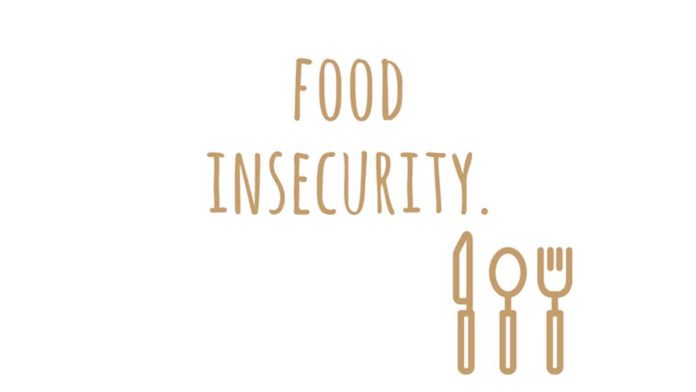Philadelphia is hungry. Mara Thompson knows this first hand because she has been hungry herself and now, during the pandemic, has been delivering food to other LGBTQ people she knows who are struggling to feed themselves.
“When I was in college,” Thompson said, “I never had enough food. Friends helped me out, giving me their food cards when they weren’t going to eat that meal, but it was a constant struggle. I know what it’s like to be surrounded by people who are eating and not know where your own next meal is coming from. Or to be living on ramen and crackers for weeks at a time.”
Now, during the pandemic, Thompson, who has been working at a local food bank for several years, has been helping some LGBTQ friends who are “out of work, out of funds and out of food.” She is also trying to raise awareness among her friends and colleagues to “be aware that people you know may be quietly starving.”
The U.S. Department of Agriculture (USDA) defines food insecurity as a “lack of consistent access to adequate food for an active, healthy life.” Nearly two million Pennsylvanians are food insecure, according to Feeding America.
Food insecurity was at a crisis point in Philadelphia well before the coronavirus pandemic knocked more Pennsylvanians out of work per capita than any other state’s residents.
Philadelphia is the most economically challenged big city in America, with 26 percent of city residents living at or below the poverty level. The Movement Advancement Project, HRC and the Center for American Progress have issued various reports on the disproportionate levels of poverty among LGBTQ people, particularly people of color. Philadelphia is nearly 70 percent Black, Latinx and Asian/PI.
Recent studies from LGBT Funders and Move for Hunger reveal that LGBTQ people are six times more likely than non-LGBTQ people to lack enough money for food for themselves or their families at some point in the last year. Children raised by same-sex couples are almost twice as likely to be living in poverty. Black LGBTQ people are twice as likely as their white peers to be food insecure. LBTQ women are more likely to be food insecure than their male counterparts.
Add this data to Philadelphia’s data on poverty and food insecurity, and tens of thousands of LGBTQ Philadelphians are at risk. According to the Philadelphia Hunger Report for 2018, the last year for which there are data, the number of people struggling against hunger in Philadelphia increased by 22 percent just since 2014. That data showed a quarter-million adults in the Philadelphia metropolitan region were working from 2015- 2017, yet were still food insecure. One in four Philadelphians and one in six Pennsylvanians is food insecure.
With the pandemic, that number has likely increased dramatically, according to local poverty advocates. Philabundance, the largest hunger-relief organization in Philadelphia, said the need for food is only going to get worse.
“For food banks across the country, this is a marathon, this is not a sprint for us. In a post-COVID-19 world, if people get back to normal and everyone gets their jobs back, they’re still not going to hop back on to their feet,” said Sam Retamar, public relations coordinator with Philabundance.
Thompson said that most of us are unaware that people we know don’t have food. “There’s shame attached to being food insecure,” she explained. “Getting people to reveal their circumstances — that is part of it. You have to help people get to the food.”
She explained that in her experience people with jobs that are hourly or have fluctuating wages like waiters, hairdressers, cleaners and people in the arts community are most likely to need food, as are people over 55. She said the guidelines for SNAP (food stamps) are strict and many people are living in poverty, yet don’t qualify for the nutritional assistance program. These are the people most at risk, she explained.
Thompson, who has been working with a local food bank for several years, said that sometimes “you just have to assume people don’t have food and just give it to them. No one is going to refuse it.”
With the pandemic keeping Philadelphians in their homes, she said there is even less access to food than usual. “We have to help each other out now more than ever.”
Mara Thompson is a pseudonym.
If you are currently out of work and/or food insecure, the City of Philadelphia launched an emergency cash assistance program on May 11. You can apply at www.compass.state.pa.us. Benephilly helps low-income Philadelphians access services: 1-844-848-4376. Manna provides meals for people with HIV/AIDS and other chronic illnesses. Apply at www.mannapa.org.

